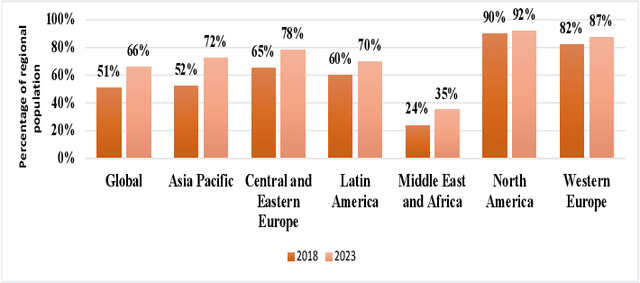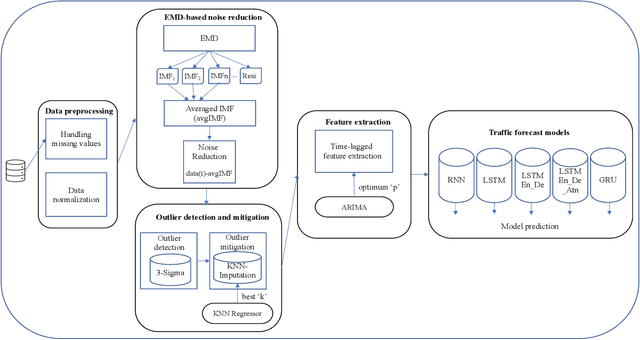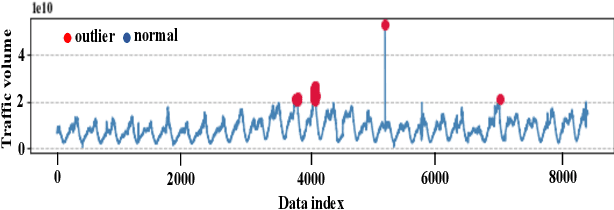DEK-Forecaster: A Novel Deep Learning Model Integrated with EMD-KNN for Traffic Prediction
Paper and Code
Jun 06, 2023



Internet traffic volume estimation has a significant impact on the business policies of the ISP (Internet Service Provider) industry and business successions. Forecasting the internet traffic demand helps to shed light on the future traffic trend, which is often helpful for ISPs decision-making in network planning activities and investments. Besides, the capability to understand future trend contributes to managing regular and long-term operations. This study aims to predict the network traffic volume demand using deep sequence methods that incorporate Empirical Mode Decomposition (EMD) based noise reduction, Empirical rule based outlier detection, and $K$-Nearest Neighbour (KNN) based outlier mitigation. In contrast to the former studies, the proposed model does not rely on a particular EMD decomposed component called Intrinsic Mode Function (IMF) for signal denoising. In our proposed traffic prediction model, we used an average of all IMFs components for signal denoising. Moreover, the abnormal data points are replaced by $K$ nearest data points average, and the value for $K$ has been optimized based on the KNN regressor prediction error measured in Root Mean Squared Error (RMSE). Finally, we selected the best time-lagged feature subset for our prediction model based on AutoRegressive Integrated Moving Average (ARIMA) and Akaike Information Criterion (AIC) value. Our experiments are conducted on real-world internet traffic datasets from industry, and the proposed method is compared with various traditional deep sequence baseline models. Our results show that the proposed EMD-KNN integrated prediction models outperform comparative models.
 Add to Chrome
Add to Chrome Add to Firefox
Add to Firefox Add to Edge
Add to Edge